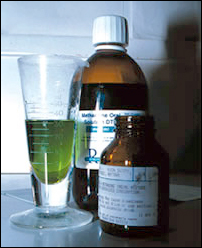Pros and Cons of Methadone Maintenance Treatment

Methadone maintenance is a great help in overcoming addiction, but it must be used right.
As heroin and prescription drug abuse rates continue to rise, the need for effective opiate addiction treatment approaches is very much in demand. Methadone maintenance treatment has a long-standing history as an effective opiate addiction treatment, though this treatment approach does carry its own set of drawbacks.
Opiate addiction affects different people in different ways in terms of how severe a person’s addiction is as well as his or her overall health and family medical history. For these reasons, methadone maintenance treatment may work well for one person and not so well for another. Ultimately, recovering addicts must decide for themselves whether the pros of methadone maintenance treatment outweigh the potential cons.
The Methadone Maintenance Treatment Approach
The effects of long-term opiate use can cause considerable damage within brain and body chemical processes. In a nutshell, the brain uses chemical messengers to communicate with itself and well as with various parts of the body. Opiates bear a strong resemblance to more than a few of these chemical messengers. With ongoing opiate use, the brain gradually stops producing its own natural chemicals and instead grows to rely on the effects of opiates to regulate brain and body functions.
According to the National Institutes of Health, the methadone maintenance treatment approach relies on methadone’s ability to imitate opiate drug effects. Methadone is in fact a synthetic opiate drug, so the brain really can’t distinguish methadone effects from any other opiate drug’s effects. As a result, a daily dose of methadone can quench the drug cravings addicts so often experience while at the same time reduce or eliminate withdrawal effects.
Pros of Methadone Maintenance Treatment
Even after a person completes the detox stage, the aftereffects of opiate addiction leave addicts in a perpetual state of depression and discontent. These are classic opiate withdrawal effects, which can quickly drive a person back to using again.
While methadone plays a central role within the methadone maintenance treatment approach, psychosocial treatment components help to enhance the drug’s effects in recovery. Psychosocial treatment components are designed to address the psychological aspects of addiction.
Psychosocial treatment components include –
- Individual psychotherapy
- Group therapy
- 12-Step support group work
- Education on the effects of drugs
Methadone, the drug, helps break the brain and body’s physical dependency on opiates while psychosocial treatment works to address the psychological aspects of addiction.
Both individual and group psychotherapies help recovering addicts work through the underlying issues that drive their addictive behaviors. Twelve-step support groups and education on opiate drug effects, provide the tools and supports needed to abstain from opiate use in everyday life.
Cons of Methadone Maintenance Treatment
As with most any treatment approach, methadone does have a side effect profile that can hamper its overall effectiveness. Side effects commonly experienced with methadone include –
- Increase in weight
- Constipation
- Loss of sex drive
- Frequent urination
Since methadone works as an opiate agent, the potential for dependency and even addiction is also an area of concern. For people coming off long-term opiate addictions, ongoing withdrawal effects and drug cravings may persist, according to the U.S. National Library of Medicine. In this case, the potential for relapse and overdose increases considerably.